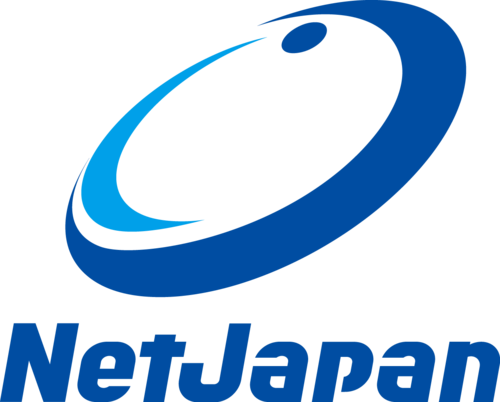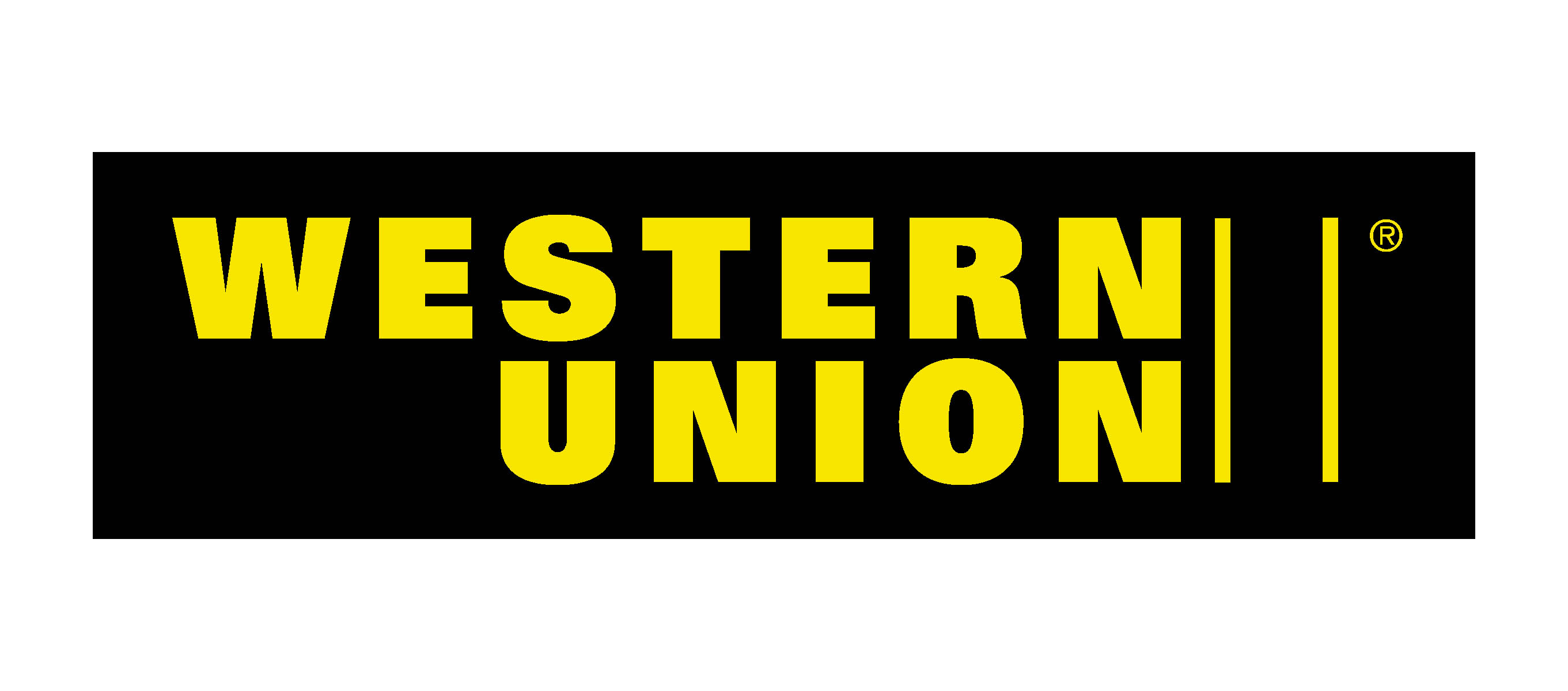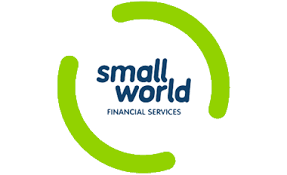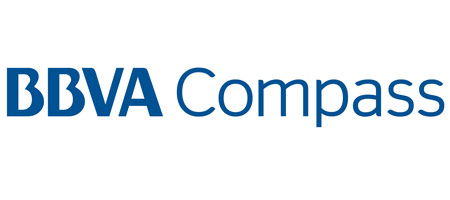Published
- 07:00 am

NetJapan, Inc., publisher of disk imaging backup, system disaster recovery, and virtualization software solutions, announces the availability of ActiveImage Protector 2016 R2 SP1, a significant update to its flagship backup product line.
ActiveImage Protector’s Inline Data Deduplication Compression (IDDC) occurs during the backup and not afterwards. This means there is no need to invest in expensive additional storage to accommodate deduplication. With flexible on-site and off-site storage technologies, backup images stored, replicated on your network, or on locally attached storage can benefit from IDDC thus reducing bandwidth, and backup image size by 50%; a 30% or more improvement over standard compression.
Hybrid environments are on the rise. More organizations run their business applications in a mixture of physical, virtual, and cloud environments. ActiveImage Protector can protect hybrid environments using the latest sector-based technology to backup disks and volumes, including the operating system, applications, data files, and configuration settings. When disaster strikes, ActiveImage Protector offers lightning fast granular file and folder recovery, and complete system restore.
ImageBoot, an instant recovery solution to boot backup images as virtual machines, is ideal for testing persistent use scenarios and has been expanded to support additional virtual environments.
Features
- Windows Server 2016 Support.
- Improved Network Client Management Console.
- Enhanced Change Tracking Driver.
- Inline Data Deduplication Compression Support for Large Volumes.
- ImageBoot with additional support for:
Oracle VirtualBox
Hyper-V Server 2016
VMware Workstation Version 12
With the increased threats of ransomware, malware, and hacking attacks against IT infrastructures, backup strategies need be re-evaluated. To help mitigate these threats, ActiveImage Protector can be deployed in a variety of organizations, including business enterprises, educational institutions, non-profit organizations, and government offices.
Related News
- 07:00 am

Settlements relate to conduct that mainly occurred 2004 to 2012;
Company has increased compliance funding 200 percent in the last five years;
Business performance for 2016 in line with previous outlook
The Western Union Company (NYSE: WU) today announced agreements with the U.S. Department of Justice (DOJ) and Federal Trade Commission (FTC) that resolve previously disclosed investigations focused primarily on the Company’s oversight of certain agents and whether its anti-fraud program, as well as its anti-money laundering controls, adequately prevented misconduct by those agents and third parties. The conduct at issue mainly occurred from 2004 to 2012.
As part of this resolution, Western Union will enter into a deferred prosecution agreement with the DOJ and a consent order with the FTC. The Company will pay a total of $586 million to the federal government, which is to be used to reimburse consumers who were victims of fraud during the relevant period. Western Union also will take specific actions to further enhance its oversight of agents and its protection of customers. Those actions will be reviewed by an independent compliance auditor for three years.
Western Union said: “We share the government’s goal of protecting consumers and the integrity of our global money transfer network, and we worked hard to resolve these matters with the government.” The Company emphasized: “We are committed to enhancing our compliance programs to prevent illicit activity on our network and protect customers who transfer money to friends, family and businesses.”
Over the past five years, Western Union increased overall compliance funding by more than 200 percent, and now spends approximately $200 million per year on compliance, with more than 20 percent of its workforce currently dedicated to compliance functions. The comprehensive improvements undertaken by the Company have added more employees with law enforcement and regulatory expertise, strengthened its consumer education and agent training, bolstered its technology-driven controls and changed its governance structure so that its Chief Compliance Officer is a direct report to the Compliance Committee of the Board of Directors.
Many state, national and international regulators and law enforcement agencies have commended Western Union in recent years for its compliance innovations, such as developing algorithms to help combat terrorist financing, and for assisting with numerous investigations.
Western Union noted that its compliance enhancements have produced significant and measurable results. The incidence of consumer fraud reports associated with Western Union money transfers has been extremely low – less than one-tenth of 1 percent of all consumer-to-consumer money transfer transactions during the past 10 years. And, over the last five years, the dollar value of reported fraud in consumer-to-consumer transactions, compared with the total value of all such transactions, has dropped more than 60 percent.
In late November 2016, as had previously been requested by the Company, the DOJ provided to the Company a proposal for a combined resolution of investigations by the U.S. Attorney’s Offices for the Eastern and Middle Districts of Pennsylvania, the Central District of California and the Southern District of Florida, which the Company sought to coordinate with the resolution of other potential government claims. The Company and the government agencies then engaged in intensive negotiations, which led to the agreements announced today.
In addition to the resolution of the previously disclosed DOJ and FTC investigations, the Company will simultaneously resolve, without any additional payment or non-monetary obligations, potential claims by the U.S. Treasury Department’s Financial Crimes Enforcement Network (FinCEN) relating to conduct in the 2010 to 2012 period that FinCEN contended violated the Bank Secrecy Act. The Company received a notice of investigation from FinCEN in mid-December 2016. The separate agreement with FinCEN sets forth a civil penalty of $184 million, the full amount of which will be deemed satisfied by the $586 million compensation payment under the DOJ and FTC agreements.
Western Union anticipates taking a charge of approximately $570 million in its 2016 fourth quarter, to record the costs associated with the settlements, fees for the required independent compliance auditor, and related matters. This amount is in addition to amounts previously accrued in 2016 in connection with the FTC matter. The Company intends to claim a deduction for the settlement payment, but because the tax effect is not certain the Company does not anticipate recording a related tax benefit in the fourth quarter.
Excluding the fourth-quarter charge, the Company anticipates reporting 2016 financial results in line with its financial outlook provided on November 1, 2016. Western Union will report its full fourth-quarter results on February 9, 2017.
Related News
- 08:00 am

Crédit Mutuel Arkéa is pleased to announce that it has acquired a 19.5% interest in Vermeg.
With renowned expertise and innovation capacity, Vermeg is a European leader in finance and insurance software solutions. It has operations in France, Belgium, Luxembourg, the Netherlands and Tunisia and reported revenues of approximately €53 million in 2016.
In a particularly competitive and highly-regulated market, Vermeg has positioned itself as an ideal partner for businesses looking for innovative solutions. Its 150-strong customer and partner base includes insurers and institutional investors, private equity firms, asset managers, depositories and central banks.
Vermeg will move its European expansion up a gear
The acquisition of a 19.5% interest by Crédit Mutuel Arkéa will allow Vermeg to move ahead with its expansion and innovation plans. Now that it has the backing of a solid banking group, Vermeg is looking to strengthen its foothold in Europe. Its 2014 acquisition of Belgian firm BSB illustrated Vermeg's capacity to grow and create value sustainably through targeted external growth.
Crédit Mutuel Arkéa will be able to further its strategy in third party services
This investment sees Crédit Mutuel Arkéa teaming up with a key partner that will help to fulfil its ambitions in third party services, a strategy that requires sustainable, agile and robust IT infrastructure.
Tarak Achich, Head of Business-to-Business and Specialized Services at Crédit Mutuel Arkéa: “We are thrilled to be able to help Vermeg accomplish its expansion ambitions in Europe. Vermeg is a great success story: it is a leader in commercial development and technology. These are key factors that will give our third party services operations added impetus. This investment will enable us to enhance our business and technological know-how, in keeping with the highest standards. It is fully in line with our Arkéa 2020 strategic plan.”
Pascal Leroy, CEO of Vermeg: “Our path has been guided by that of our customers and the trust they have placed in us for over 20 years. We are therefore very happy to have Crédit Mutuel Arkéa become a shareholder in our company and help us pursue our ambition: to develop solutions and industrial offerings that combine cutting-edge technology and business know-how. This investment also gives us added leeway to embark on further acquisitions going forward.”
Related News
- 06:00 am

Small World Money Transfer, a leading provider of cross-border payment services in Europe and North America, is today announcing its partnership with Allied Bank Limited (ABL), one of the leading banks in Pakistan, through its Home Remittance Division.
Through ABL’s Home Remittance Division, a reference partner will be added, allowing the bank to strengthen its remittance service, Allied Express. This means that funds sent to Pakistan from any of the 40 countries Small World operate in can be collected by the beneficiaries across the entire ABL network, integrating more than 1,150+ branches in Pakistan. The remittances may also be instantly credited to an ABL bank account or any other bank in Pakistan.
According to World Bank data, remittances are extremely important for Pakistan. In 2014, remitances accounted for 6.9% of the country’s GDP, while the State Bank reported that remittances to Pakistan were around $19.3 billion in 2015.
Nick Day, CEO of Small World Financial Services says:
“We are excited to partner with Allied Bank and expand our services to clients looking to transfer money to Pakistan. It’s great to be able to offer this service to our clients, as well as give them the opportunity to take advantage of the security and guarantees that ABL can offer.
“This partnership will enable our clients to be able to transfer money in an easier, quicker and cost-effective matter. By embarking on this partnership, we hope to demonstrate our commitment to our clients worldwide.
Expanding presence in Asia
Founded in the United Kingdom in 2006 as a result of a merger between different companies specialized in international transactions and money transfer, Small World FS is present across all five continents and has become one of the world’s leaders in digital money transfer. With a payout network of over 250,000 locations worldwide, Small World delivers a safe, fast, economical and totally transparent alternative to send money to any part of the world.
Pakistan is one of the countries in which Small World is placing a lot of focus in expanding its services, both through commercial alliances with key banking entities such as ABL, and through direct presence.
Related News
- 04:00 am

IMM, the industry’s leading provider of eSignature and eTransaction Management for financial institutions, announced the extension of its popular “Switch Promotion” due to the overwhelming response and continued interest from both banks and credit unions nationwide.
IMM’s “Switch Promotion” was originally scheduled to end Dec. 31, 2016. Continued market interest and customer demand led to the offer’s extension. Institutions moving to IMM’s platform listed IMM’s superior integrations with Core, Lending, Account Opening, and ECM/Imaging systems as key motivators for selecting IMM. Strong customer service, optimum control and end-to-end transaction management capabilities were also reasons to replace existing, legacy systems.
According to IMM’s Executive Vice President, John Levy, the switch program provides financial institutions with a cost-effective migration strategy to replace existing eSiganture systems. “An increasing number of banks and credit unions were disappointed with their current systems. We received an incredible response after launching the switch program. To us, this interest also demonstrates the pivotal role eSignature technology plays in ensuring day-to-day operations are efficient and effective. Extending the campaign gives even more institutions the opportunity to replace dated systems with IMM’s advanced technology platform.”
More than 30 percent of IMM’s client base has been with the company for over a decade, relying on IMM’s technology solutions to grow their businesses. This highlights the long-term value clients find in the company’s suite of eSignature and eTransaction automation solutions. Of IMM’s more than 700 financial institution clients, more than half have used its technology for at least five years. In addition, more than 55 percent of the company’s client base relies on three or more of the company’s eTransaction solutions to drive enhanced banking experiences for consumers, and to transform the financial institutions’ back office operations.
Related News
- 08:00 am

The U.S. Commodity Futures Trading Commission (CFTC) issued an Order today filing and settling charges against Citigroup Global Markets Inc. (Citigroup) for spoofing — bidding or offering with the intent to cancel the bid or offer before execution — in U.S. Treasury futures markets and for failing to diligently supervise the activities of its employees and agents in conjunction with the spoofing orders.
The Order requires Citigroup to pay a $25 million civil monetary penalty. The Order also requires Citigroup to cease and desist from violating the Commodity Exchange Act’s (Act’s) prohibition against spoofing and the CFTC regulation governing diligent supervision. In addition, the Order requires Citigroup to comply with undertakings, including providing annual training addressing the Act’s legal requirements with regard to spoofing to its employees who submit orders on U.S. futures markets and their supervisors and maintaining systems and controls reasonably designed to detect spoofing activity by its traders.
CFTC Director of Enforcement Comments
CFTC Director of Enforcement Aitan Goelman commented: “Spoofing is a significant threat to market integrity that the CFTC will continue to vigorously investigate and prosecute. Additionally, as this action shows, registrants with supervisory responsibilities must provide their employees with sufficient training and have in place adequate systems and controls to detect spoofing. Failure to do so will have significant consequences.”
Specifically, the Order finds that Citigroup, by and through five of its traders (who worked on either its U.S. Treasury or U.S. Swaps desks), engaged in spoofing more than 2,500 times in various Chicago Mercantile Exchange (CME) U.S. Treasury futures products during the Relevant Period. According to the Order, the traders’ spoofing strategy involved placing bids or offers of 1,000 lots or more with the intent to cancel those orders before execution. The spoofing orders were placed in the U.S. Treasury futures markets after another smaller bid or offer was placed on the opposite side of the same or a correlated futures or cash market, the Order finds. The traders placed their spoofing orders to create or exacerbate an imbalance in the order book and cancelled their spoofing orders after either the smaller resting orders had been filled or the traders believed that the spoofing orders were at too great a risk of being executed, the Order finds. In addition to executing the spoofing strategy individually, according to the Order, on at least one occasion, some of Citigroup’s traders coordinated with each other to implement the spoofing strategy, by placing one or more spoofing orders after another trader had placed one or more smaller resting orders in the same or a correlated futures or cash market.
Citigroup’s Supervision Failures
The Order also finds several supervision failures related to Citigroup’s spoofing. First, Citigroup provided insufficient training about spoofing to traders on its U.S. Treasury and U.S. Swaps desk. In fact, for most of the traders through which Citigroup spoofed, the only communication they received about spoofing before or during the Relevant Period consisted of a single compliance alert containing the Act’s anti-spoofing language. Second, the Order finds that Citigroup did not have adequate systems and controls in place to detect spoofing by traders on its U.S. Treasury and U.S. Swaps desks. Third, the Order notes that even when alerted to a spoofing incident involving one of its traders, a supervisor and other members on the U.S. Treasury desk failed to comply with Citigroup’s then-existing policies regarding reporting violations of the Act.
Further, the Order recognizes Citigroup’s cooperation during the investigation of this matter, including Citigroup’s self-reporting of additional potential spoofing orders after the CME had inquired about certain suspicious orders, as well as corrective action taken by Citigroup prior to entry of the Order to improve its supervisory systems, internal controls, and training with respect to spoofing.
The CFTC thanks and acknowledges the assistance of the CME.
CFTC Division of Enforcement staff members responsible for this case are Margaret Aisenbrey, Christopher Reed, Allison Sizemore, Jessica Harris (former staff), Jennifer Blakley, Steve Yang, Daniel Jordan, Rick Glaser, and Charles Marvine.
Related News
- 01:00 am

TSYS (TSS) announced today that it has signed a long-term renewal of its payments services agreement with BBVA Compass to continue processing the bank’s consumer, commercial and small business credit card portfolios.
“We are very pleased to announce that we have agreed to extend our relationship with BBVA Compass, a valued TSYS client for more than 35 years,” said Pam Joseph, president and chief operating officer of TSYS. “As we have done for many years, we will work closely with the bank on its needs and continue to support future growth and innovation across all of its credit card portfolios.”
Financial terms of the long-term agreement were not disclosed.
Related News
- 01:00 am

BMO Harris Bank today announced the release of BMO Harris Bank Masterpass, Android Pay and Samsung Pay digital wallets for select BMO Harris Bank credit and debit cards.
This new digital wallet lineup is just one more way BMO Harris Bank is digitally connecting customers to payments without the need to dig for a wallet or a card. BMO Harris Bank Masterpass, Android Pay and Samsung Pay are available for BMO Harris Bank personal credit cards, personal debit cards and small business debit cards only. More BMO Harris Bank card products will be available for use with digital wallets later this year.
“We are constantly seeking new ways to make the customer experience more enjoyable, seamless and secure, and these new digital wallets are an example of our commitment,” said Patrick Strieck, Managing Director U.S. Retail and Small Business Payments, BMO Harris Bank. “Our partnership with Mastercard allows us to differentiate our product suite in the marketplace, and we are thrilled to debut our new digital wallets and enrich the shopping experience for our customers.”
With BMO Harris Bank Masterpass, purchases are expedited wherever contactless payments are accepted. Transactions are made with a quick tap using the BMO Harris Bank Masterpass app, which pays securely with the user’s digitized debit or credit card number assigned within the app. Shopping experiences are simplified across channels with the option to use at thousands of retailers worldwide. In a similar manner, Android Pay and Samsung Pay users simply hold a Near Field Communications (NFC) enabled device near a participating terminal and the payment is made. Samsung Pay users will also be able to make contactless purchases at merchant point-of-sale swipe terminals.
Digital wallet accounts always remain secure with the fingerprint or PIN security feature, which prompts users to confirm their identity. In addition, digital wallets use uniquely encrypted assigned card numbers, which are not the physical credit or debit card number and can also be quickly and easily suspended in case a device is lost without disabling the physical card.
Related News
- 05:00 am

Varo Money, Inc. ("Varo"), a mobile-only banking start-up that will help consumers gain greater control of their financial lives, today announced the launch of consumer lending via its mobile app.
"We are very excited about the suite of lending products we are building and the partnerships we have formed to support Varo's lending capabilities," said Jaime Jerusalmi, Varo's Head of Lending Products. "In addition to cutting-edge functionality, we plan to raise the bar in terms of helping customers borrow responsibly. Our Varo Flexible Credit product will be a great alternative for people who don't want to use their credit card to finance large purchases, to accommodate an unexpected expense or that want to build their credit".
Colin Walsh, Varo's CEO, added, "Almost half of Americans cannot face a $400 unexpected financial emergency. Our mission is to help people be better prepared for these situations. This is a very important milestone for Varo as we begin providing lending and another clear step toward allowing consumers to take control of all their finances in one intuitive app."
The Varo Money app is currently in beta and is expected to launch in the coming months. Varo recently partnered with Kasisto to introduce "Val," a conversational artificial intelligence (AI) bot, designed to assist customers with banking, financial insights, real-time goals, and plans to cover unexpected emergency expenses. In 2016, Varo partnered with The Bancorp Bank to provide private label banking services to support Varo mobile banking products. Varo has also partnered with Galileo Processing, Inc. to provide payment and transaction processing services.
Related News
- 07:00 am

Leading Treasury software management firm BELLIN was celebrating this week, having scooped two major category titles in the Business Worldwide Magazine (BWM) Global Corporate Excellence Awards.
As well as being awarded Best Treasury Software and Services Company (2016), CEO and founder Martin Bellin also picked up the title of Financial Services CEO of the Year (2016).
These latest awards are the culmination of an incredibly successful two decades for both Martin Bellin and his company group BELLIN. An IT and treasury specialist organisation, it offers innovative and timely web-based software and services for the industry.
A former corporate treasurer himself who was driven to develop software after understanding first-hand how such a solution could massively benefit the industry, he has turned his one-man venture into a company which today provides employment for 135 individuals. Clients span a variety of sectors and include such multi-national giants and household names as Toshiba, Toyota, Puma, Red Bull, L'Occitane, Triumph and Gazprom.
"We are delighted to have been voted Best Treasury Software and Services Company in these awards," said Bellin. "It's nice to be given recognition but really we are already delighted at how much our software is helping out the industry. And as a company we will continue to innovate along with rapid advances in IT."
Some of BELLIN's success is attributed to the fact that the software is so flexible and accessible that it can be used by both treasurers and non-treasurers alike. But then, even before the internet was but a glimmer in Tim Berners-Lee's eye, Martin Bellin had dreamed of a global platform which could be used by all group companies to input and check data, and which could ultimately have the purpose of consolidating and connecting staff not simply in various locations, but around the world.
A spokesman for BWM said BELLIN and its founder was "an extremely deserving winner."
"This is an award which is always extremely well contested," he said. "It's not easy for our panel to whittle down a short list, never mind choose an outright winner, but BELLIN proved unanimously popular. With his creativity Martin Bellin went on to improve an entire process and make life easier for companies, including multi-national organisations around the globe. That's quite a claim to fame."









